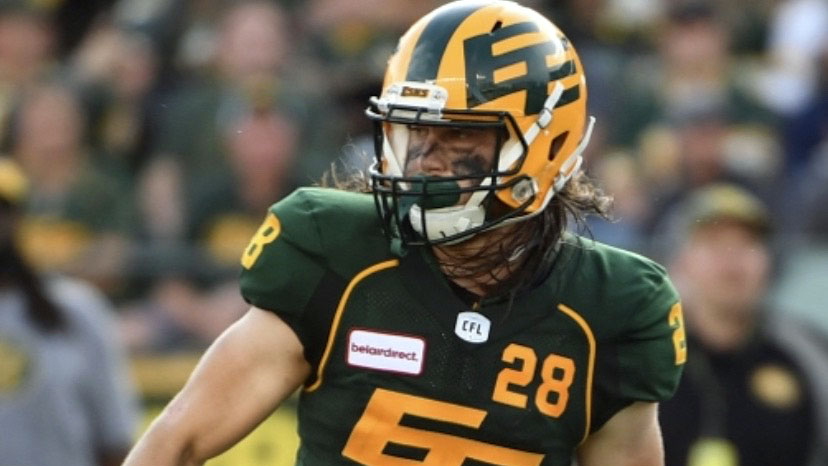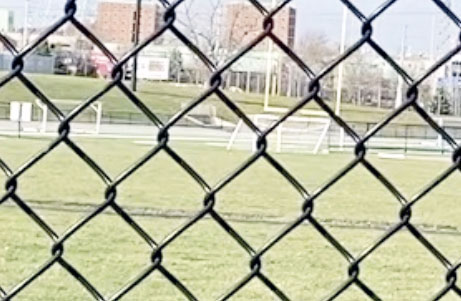Sports economist says Canadian football will find its way back post-pandemic
COVID-19 could be just a ‘blip' for the CFL

caption
Jordan Hoover playing in the Canadian Football League at EdmontonJordan Hoover is trying to stay positive, even if he’s not playing professional football this year.
“I’ve been playing the game for over 20 years and it’s one my greatest passions and also my paycheque,” Hoover, a player with the Canadian Football League’s Edmonton team said in an interview.
“I’m optimistic, and if there’s going to be a season next year, I need there to be. I want there to be.”
According to a sports economist, Hoover has the right attitude.
Canada’s biggest football league, the CFL, had its season cancelled due to COIVD-19 after repeated efforts to play a shortened schedule fell through due to uncertainties in player safety and a lack of funding. A request for a government stimulus package “never materialized,” CFL commissioner Randy Ambrosie said in a news release in August.
But despite the pandemic cancelling the CFL season, the football world should not be losing hope, according to Moshe Lander, an economist and a senior lecturer in the economics of sports, gaming and gambling at Concordia University.
COVID-19 shouldn’t make aspiring young players abruptly stop playing the game either, Lander said. Young athletes should continue to be part of football teams, put together by high schools and universities, to reach the CFL status.
Other sports and leagues were able to salvage their seasons, Lander noted.
The National Hockey League and National Basketball Association “got through the playoffs” after doing several tests, all resulting in COVID negative cases. The National Football League is also on track with only a few games delayed or rescheduled due to virus testing.
The worst the CFL could see is a few ownership groups in Ottawa, Vancouver or Hamilton walking away for a year or two because of the pandemic situation, Lander said, but the league will soon “find a way to model on.”

caption
Fenced football field closed due to COVID-19Lander said sports will continue to thrive after the pandemic because they’re so important to athletes, owners, agents, fans and many networks dedicated to 24-hour programming.
“When you hit that pothole on the highway of life, it’s unnerving and you talk about it for the next minute, then road smooths again and you move on,” Lander said.
“It doesn’t leave a lasting damage to the axle. It’s only a bump in the road. It’s a blip.”
Lander said although players won’t get paid during this season, some of them have other jobs to support their family while not being discouraged from pursuing the sport.
“Go back 70 or 80 years and major baseball players had jobs in the off-season – like running car dealerships and working in manufacturing or agriculture as a way to supplement their income,” Lander said in an interview.
Hoover, the Edmonton CFL player, said he leans on his coach and agent for support during times like these.
Jayevan Foster, Hoover’s Hamilton, Ont.-based agent, said he likes to help his players not just on the field but also off the field during unprecedented times.
Foster has set up webinars for his players with experts on financial literacy and managing savings during the pandemic. He said he always wanted to be their “big brother” and help them circumvent these situations and continue to focus on the sport.
“When I was a receiver at Queens University in 2009, I didn’t know how to budget or use money,” Foster said in an interview. “I prepared them for this moment and continue to make sure they learn.”

